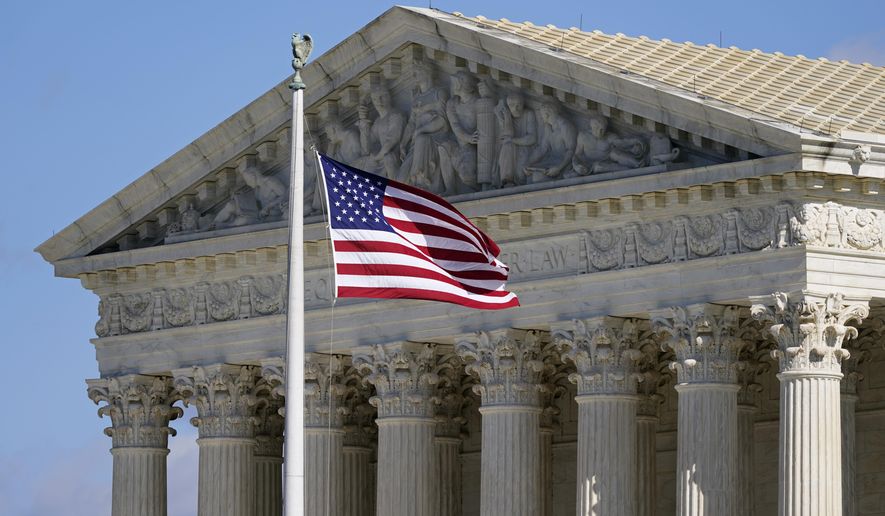The lawyer for a 77-year-old Roman Catholic deacon in Lubbock, Texas, says he plans to ask the Supreme Court to reverse a June 11 state supreme court ruling allowing the Diocese of Lubbock to label the man, Jesse Guerrero, as being “credibly accused” of sexually abusing a minor.
Under the Texas Supreme Court decision, attorney Nick L. Olguin told The Washington Times in a telephone interview, The “[Roman Catholic] Church can define words to mean whatever they want it to be in terms of ‘canon law.’ They can say whatever the heck they want to say to whomever they want to say it, even if it’s not true.”
The case centers on a list titled “Names of All Clergy with a Credible Allegation of Sexual Abuse of a Minor” that the Lubbock diocese posted on its website in January 2019. In that list, Mr. Guerrero — a deacon whose permission to perform sacramental functions including baptism, assisting at Mass, preaching homilies, and conducting weddings and funerals had been withdrawn in 2008 — was listed as having abused a “minor,” even though the woman allegedly involved was over the age of 21.
The Diocese of Lubbock later clarified the statement to classify the alleged victim as a minor because the individual has severe bipolar disorder and was reportedly not on her medication when the incidents — which Mr. Guerrero denies — allegedly took place. In a 2003 alleged incident, Mr. Olguin said, the charge revolved around a church employee seeing Mr. Guerrero leave a room and “adjusting his pants” while the woman, “neither disrobed nor getting dressed,” was seated inside. A 2008 charge stemmed, the lawyer said, from a report that Mr. Guerrero’s car was parked outside the woman’s home.
“Now, Mr. Guerrero is forever labeled a sexual abuser of minor children,” Mr. Olguin said. “It’s ridiculous. If any other private company came out and said this, they would be held to account because they were communicating to the general public,” he added.
In its 7-1 ruling, the Texas Supreme Court said, “Religious groups have a First Amendment right to decide for themselves — free from court interference — matters of ecclesiastical governance as well as faith and doctrine.”
Lower courts in Texas originally sided with Mr. Guerrero’s argument that the Lubbock Diocese defamed him by not using the Canon Law definition of minor when it first published the list and “was negligent in the original publication by not clarifying its accusations,” as Mr. Guerrero’s attorneys argued in a Texas Supreme Court filing.
The Lubbock Diocese, represented by the District-based Becket public-interest law firm, had argued in a separate filing with the Texas Supreme Court that the First Amendment blocks government and the courts from interference in a church’s management of its internal affairs, a position supported by several scholars and groups that filed friend-of-the-court briefs in the case.
By endorsing “church autonomy,” Mr. Olguin said, the Texas Supreme Court is giving the Lubbock Diocese “complete immunity. That’s a slippery slope we’re getting into.”
Mr. Guerrero’s permission to perform sacramental functions including baptism, assisting at Mass, preaching homilies, and conducting weddings and funerals were permanently withdrawn by the Lubbock Diocese in 2008, although he was not laicized and retains his ordination. His lawyer said Mr. Guerrero had “a major stroke” and “can’t get up and around anymore.”
• Mark A. Kellner can be reached at mkellner@washingtontimes.com.




Please read our comment policy before commenting.